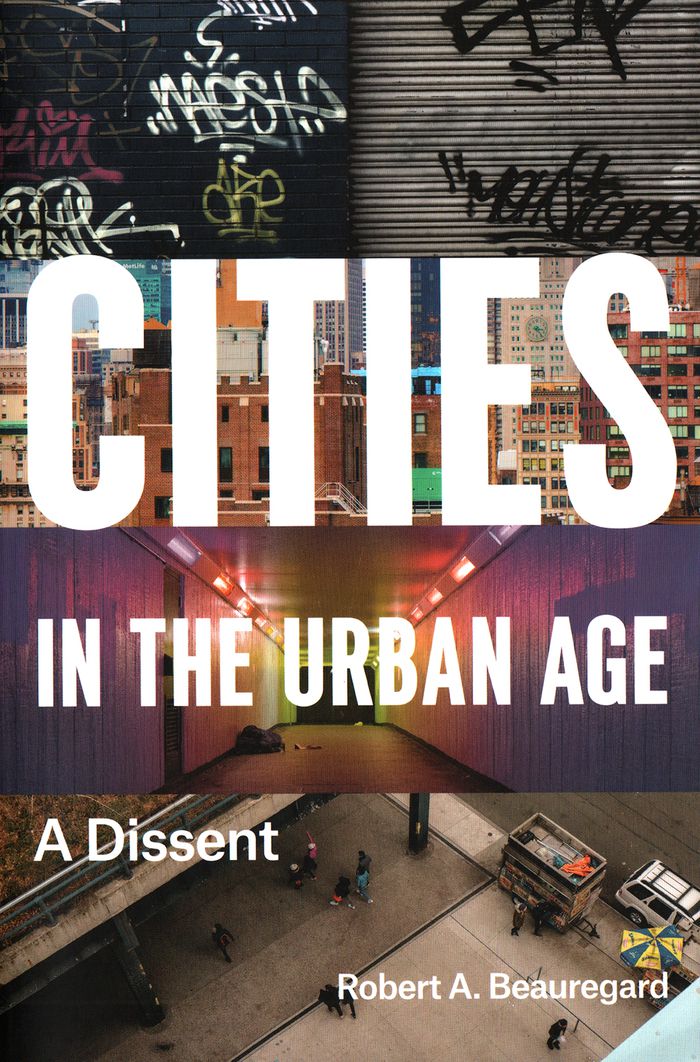books
When America became suburban
$23.95
(available to order)
Summary:
In the decades after World War II, the United States became the most prosperous nation in the world and a superpower whose dominance was symbolized by the American suburbs. Spurred by the decline of its industrial cities and by mass suburbanization, people imagined a new national identity—one that emphasized consumerism, social mobility, and a suburban lifestyle. The(...)
When America became suburban
Actions:
Price:
$23.95
(available to order)
Summary:
In the decades after World War II, the United States became the most prosperous nation in the world and a superpower whose dominance was symbolized by the American suburbs. Spurred by the decline of its industrial cities and by mass suburbanization, people imagined a new national identity—one that emphasized consumerism, social mobility, and a suburban lifestyle. The urbanity of the city was lost. In "When America became suburban", Robert A. Beauregard examines this historic intersection of urban decline, mass suburbanization, domestic prosperity, and U.S. global aspirations as it unfolded from 1945 to the mid-1970s. Suburban expansion and the subsequent emergence of sprawling Sunbelt cities transformed every aspect of American society. Assessing the global implications of America’s suburban way of life as evidence of the superiority of capitalist democracy, Beauregard traces how the suburban ideology enabled America to distinguish itself from both the Communist bloc and Western Europe, thereby deepening its claim of exceptionalism on the world-historical stage. Placing the decline of America’s industrial cities and the rise of vast suburban housing and retail spaces into a cultural, political, and global context, Beauregard illuminates how these phenomena contributed to a changing notion of America’s identity at home and abroad. "When America became suburban" brings to light the profound implications of de-urbanization: from the siphoning of investments from the cities and the effect on the quality of life for those left behind to a profound shift in national identity.
books
September 2006, Minneapolis, London
Suburbs
books
$40.95
(available to order)
Summary:
This book addresses the differences between apartheid and postapartheid Johannesburg and treats the city in regional, national, and international contexts. "Emerging Johannesburg" explores the recent economic and political transformations that have defined and hindered the city in its development as a world player. Contributors address issues such as Johannesburg's(...)
Urban Theory
March 2003, New York
Emerging Johannesburg : perspectives on the postapartheid city
Actions:
Price:
$40.95
(available to order)
Summary:
This book addresses the differences between apartheid and postapartheid Johannesburg and treats the city in regional, national, and international contexts. "Emerging Johannesburg" explores the recent economic and political transformations that have defined and hindered the city in its development as a world player. Contributors address issues such as Johannesburg's urban/suburban divide and its relationship to poverty and socio-economical power, local politics, AIDS, and the effects of postapartheid on ordinary residents.
books
March 2003, New York
Urban Theory
$44.95
(available to order)
Summary:
In "Cities in the Urban Age", Robert A. Beauregard considers the city as a cauldron for four haunting contradictions. First, cities are equally defined by both their wealth and their poverty. Second, cities are simultaneously environmentally destructive and yet promise sustainability. Third, cities encourage rule by political machines and oligarchies, even as they are(...)
Cities in the urban age: a dissent
Actions:
Price:
$44.95
(available to order)
Summary:
In "Cities in the Urban Age", Robert A. Beauregard considers the city as a cauldron for four haunting contradictions. First, cities are equally defined by both their wealth and their poverty. Second, cities are simultaneously environmentally destructive and yet promise sustainability. Third, cities encourage rule by political machines and oligarchies, even as they are essentially democratic and at least nominally open to all. And fourth, city life promotes tolerance among disparate groups, even as the friction among them often erupts into violence. Beauregard offers no simple solutions or proposed remedies for these contradictions. Without these four tensions, cities wouldn’t be cities. Rather, Beauregard argues that only by recognizing these ambiguities and contradictions can we even begin to understand our moral obligations, as well as the clearest paths toward equality, justice, and peace in urban settings.
Urban Theory
